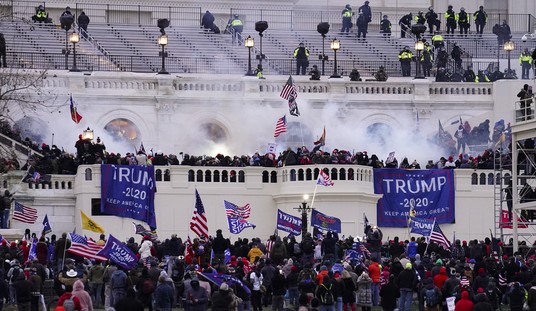Data from the Bureau of Labor Statistics show that there are more union members in the public sector than in the private sector in the United States. Thirty-nine percent of state and local government workers are members of unions, compared to just 7 percent of private sector workers. What problems are caused by the high level
of public sector unionism?
Steven Greenhut argues that public sector unions are “bankrupting the nation.” Greenhut’s book comes at a time of rising concern about the growing political power of public sector unions. With large budget deficits and huge funding gaps in pension plans, policymakers in many states are trying to constrain spending and improve government efficiency. But many governors, such as Chris Christie of New Jersey, are finding that unions stand in the way of needed fiscal reforms.
Greenhut is a California-based journalist and a former member of the editorial board of the Orange County Register. He is thus familiar with both public sector unions and state budget crises.
California’s public sector workers have the highest average compensation of public sector workers in any state, and they also have one of the highest rates of unionization. It’s not a coincidence that the state is having severe budget problems and that it finds spending restraint very difficult to achieve.
Greenhut’s book focuses on California, and his background as a journalist results in a narrative-driven examination of the public sector union problem. He examines how public sector workers can
often retire at age 50 or 55 and draw very large pensions. In California, for example, there are more than 9,000 retired public sector workers with annual pensions of more than $100,000 a year. Oftentimes these high pensions result from government workers abusing the system; for example, the last year of an employee’s salary
may be artificially inflated to garner a larger annual pension, a technique known as “pension spiking.”
Recommended
Journalists often do not ask tough questions of groups such as firefighters
and police because of the valuable contributions of those groups to local governments. But Greenhut analyzes these groups asspecial interests like any other, pushing for private gain and advantage. Yes, fire and police jobs can be dangerous, he says, but numerous private sector jobs are even more dangerous, and they don’t get
the sweetheart deals on pensions and other benefits that public sector workers do.
The author takes on the education unions as well. The American Federation of Teachers and the National Education Association are powerful players in every aspect of education policy, and they rake in
about $2 billion of union dues and fees a year. Greenhut describes how these unions “shamelessly” oppose reforms such as school choice, how they protect failing teachers from termination, and how they impose layers of costly bureaucracy on local governments.
While Greenhut has a strong narrative and tackles a very important issue, I would like to have seen more analysis of the union problem from a national perspective. Which states are the most unionized? Which states have the biggest pension problems? How will taxpayers be affected if governments don’t start reforming worker compensation packages? Greenhut does not provide sufficient analysis to answer those questions.
As I have documented, the level of public sector unionization varies dramatically from state to state. While New York’s public sector workforce is 73 percent unionized, North Carolina’s is only 8 percent. These large differences are due to varying state-level rules on collective bargaining and “union shop” provisions. Presumably, the
public sector problems that Greenhut describes, such as pension abuses, are worse in the high-union states, but this is something that needs to be explored. Similarly, research is needed to compare the problems created by teachers’ groups in heavily unionized states such as California, and teachers’ groups in states such as Virginia,
which have no monopoly unionism.
Greenhut concludes his entertaining but depressing book noting that “the public’s servants have become the public’s masters.” It does seem that the nation’s 20 million state and local government workers have tightened the screws on citizens and governments in many states. As the baby boomers in government workforces retire and draw their generous pension and retiree health benefits, there will be pressure to raise property, income, and sales taxes in the states.
Looking at possible reforms, Greenhut says that “public sector unions should be outlawed.” I would describe the needed reform somewhat differently. State governments should pass legislation to ban collective bargaining in the public sector, which is the successful path followed by Virginia and North Carolina. Government workers
should be able to join voluntary organizations and have a voice in public policy debates, as people in any other voluntary organization can do. But collective bargaining infringes the rights of workers to freedom of association, and it creates monopoly unions with a privileged position in our democratic process.
A huge fiscal battle between taxpayers and public sector unions is getting under way in many states across the nation. Steven Greenhut’s book provides a timely guide to the challenges ahead in reforming governments and restraining the self-serving appetites of government unions.
























Join the conversation as a VIP Member